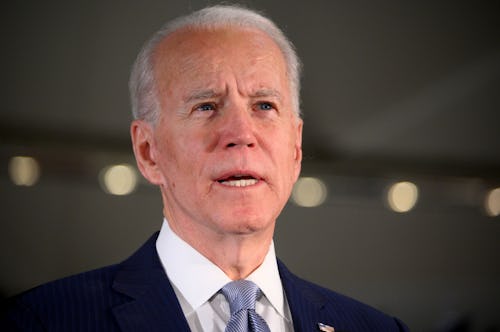Biden just pardoned 3 people in his first use of clemency powers
Among them was 87-year-old Abraham Bolden, the first Black Secret Service agent.

For the first time in his presidency, Joe Biden is using his clemency powers in honor of Second Chance Month. On Tuesday, Biden announced he’s granting clemency to 75 people and pardoning three others. The move is part of the Biden’s administration new efforts to “support those re-entering society after incarceration.”
Among those receiving pardons is 87-year-old Abraham W. Bolden. He was the first Black Secret Service agent and served on President John F. Kennedy’s detail. In 1964, Bolden faced federal bribery charges following accusations that he tried selling a copy of a Secret Service file. Per the Associated Press, Bolden’s first trial ended in a hung jury. After he was convicted with a second trial, key witnesses admitted they had lied at the prosecutor’s request. Since then, Bolden has maintained his innocence. Biden’s move Tuesday doesn’t confirm that innocence, but it does give a sense of restitution for Bolden.
Biden also extended pardons two people with low-level drug offenses. As for the people given clemency, Biden said he did so because many of them would have been given much lighter sentences if they were charged with the same offense in 2022.
“America is a nation of laws and second chances, redemption, and rehabilitation,” Biden said in a press release. “Elected officials on both sides of the aisle, faith leaders, civil rights advocates, and law enforcement leaders agree that our criminal justice system can and should reflect these core values that enable safer and stronger communities.”
If you’re unaware, Second Chance Month has been around in the United States since 2017. But Biden has taken on criminal justice reform as a big part of his presidency. Of course, that has to look like addressing what happens once people leave incarceration, too; in March, Biden said his administration was “working across federal agencies to eliminate barriers to reentry”.
That work resulted in not only Biden’s pardons on Tuesday but also an expansion of Second Chance opportunities. A key part of the expansion focuses on labor. For example, the Department of Justice and the Department of Labor are collaborating as part of the First Step Act. Per the White House, this partnership is “the first time the Department of Labor will bring its job training and re-entry support and expertise to federal prisoner.”
“Advancing successful re-entry outcomes makes our communities safer, disrupts cycles of economic hardship, and strengthens our economy,” the White House said. “America is in a prime position to offer opportunities for meaningful employment to the more than 600,000 people that leave prison every year — for whom securing stable employment is among the most significant challenges.”
On one hand, it’s always nauseating to read politicians talk about the U.S. as a land of “second chances.” No amount of reform can eliminate the violence of the criminal justice system. At the same time, it’s not as if Biden will ever come out as a supporter of abolition. So at least he can use his clemency powers for a little bit of good.